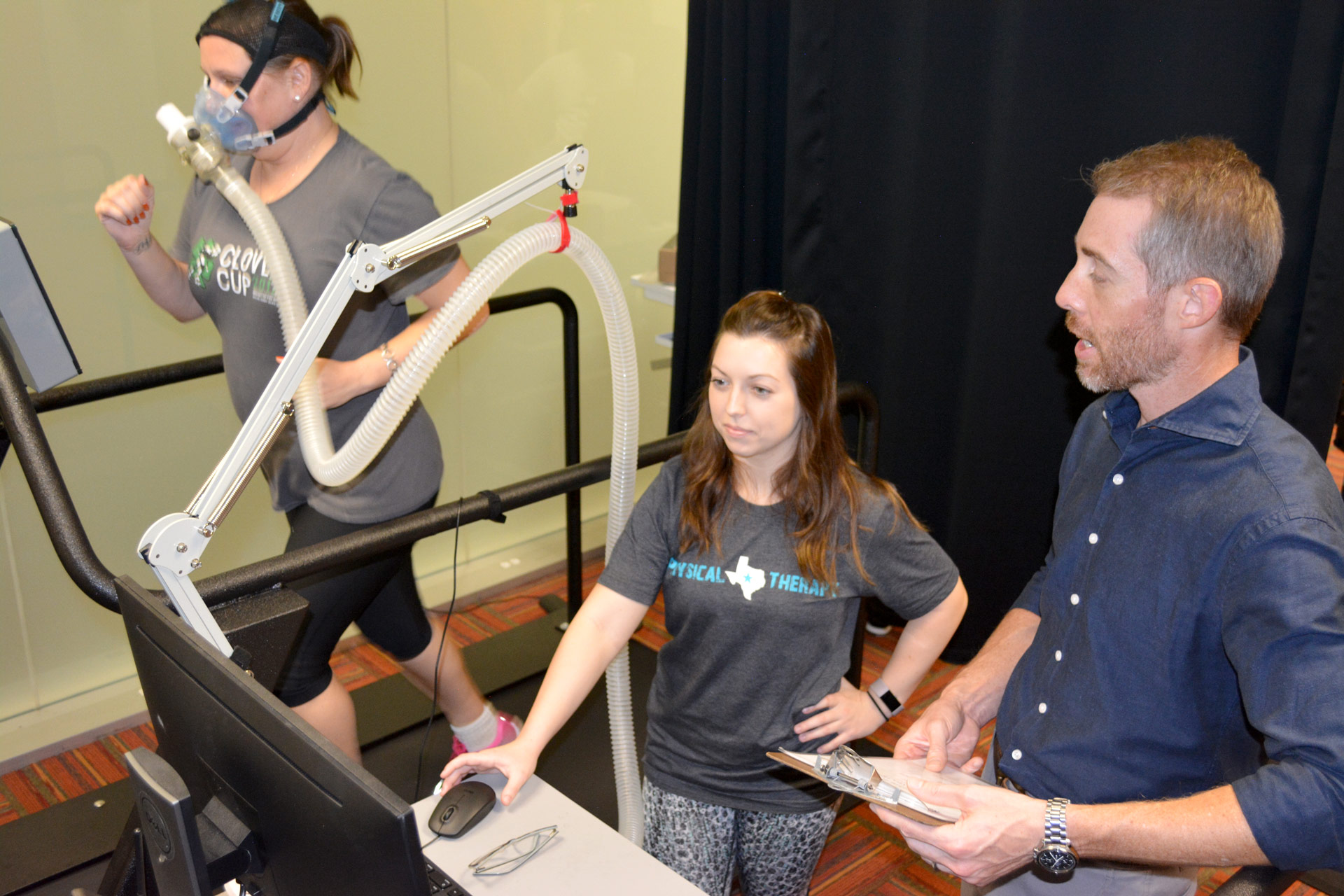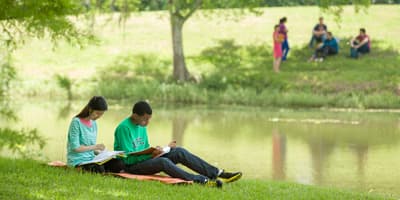New position, new Recreation and Wellness facility work out perfectly for new professor
December 1, 2017 | UHCL Staff

After being an adjunct professor of exercise and health sciences at University of
Houston-Clear Lake for several years, Kirk English has plenty of reasons to be happy
to join the UH-Clear Lake faculty full time as an assistant professor of exercise
and health sciences this fall.
“It’s a homecoming of sorts, because I’m now teaching in the program from which I
received my own bachelor’s and master’s degrees,” English said. “I’ve always enjoyed
teaching and when the position opened here, I very excitedly applied.”
There’s more that drew English back to UHCL from his 13-year career as a research
scientist in exercise physiology at NASA Johnson Space Center. “Bill Amonette, who’s
an associate professor in exercise and health sciences, is one of my closest friends
and professional colleagues. And Terry Dupler was one of my professors from my time
here as a student,” English said. “The opportunity to work with them was a huge draw.
We’d talked about it for years. I really enjoyed teaching as an adjunct, and now as
a full-time faculty member, I’m enjoying it even more.”
As an adjunct, English said it was a bit more difficult to try to develop relationships
with students. “Now I’ll see these students regularly over the next several years
and I’m really looking forward to that continuity.”
English added that the construction of the new Recreation and Wellness Building played
a positive role in his decision to leave NASA to teach and conduct research full-time
at UHCL. “It’s a huge step forward for our program and will enable us to recruit more
top-level students,” he said. “Students will have so many more opportunities to work
with campus recreation, for example, providing personal training to students, faculty,
and staff. And from a teaching standpoint, we are going from one modest-sized lab
to three labs. That’s triple the space and equipment in a top-notch facility that
will attract top-notch faculty. It also enhances our ability to secure grant funding
and to perform research.”
English said that he and his colleagues continually discuss ways to improve their
courses, consider ideas for new course options, and find ways to better equip students
for a career in exercise science. “One of the other reasons I am so glad to come to
UHCL is that I place so much value on the research side of education,” English said.
“We have a new undergraduate course called ‘Evidence-Based Practice’ and it’s central
to my approach as an exercise scientist and educator.”
The term “evidence-based practice” has been around for 25-30 years, coined by medical
doctors who realized the importance of basing their clinical decisions on the best
available evidence, ideally, randomized clinical trials. “It’s not acceptable to keep
doing things a certain way just because it’s the way things always have been done,”
he said. “There should be research evidence to support or refute a given practice;
this is particularly important in our field. Many times, people take direction from
a personal trainer in a gym who could be viewed as knowledgeable, when in fact what
they’re saying is ignorant or potentially dangerous.”
In an academic setting, English explained, students should be taught that the exercise
prescriptions that they give require a basis in scientific research. “I wrote a textbook
with Bill Amonette and William Kraemer from Ohio State University entitled, ‘Evidence-Based
Practice in Exercise Science.’ The purpose of the book is to explain the evidence-based
paradigm and to teach students how to apply the process to the field of exercise science.
I believe we need this in our field—people do not need to do as they think best, they
need to follow established procedures that we can demonstrate will work through scientific
evidence.”
The field of exercise science, said Kirk, is growing up. “It’s taken a long time to
get the medical community on board with the idea that we’re not just about sports
performance, we are about health across the life span. If we continue to use an empirical,
scientific approach, we’ll overcome the misconceptions our field has faced. In the
end, health is at the heart of what we’re doing.”
For more information about UHCL’s Recreation and Wellness Center, visit www.uhcl.edu/about/administrative-offices/facilities/construction-projects/recreation-wellness-center.
About the Author:
Recent entries by
October 18 2022
Better technology transforms campus safety: Police Chief demonstrates SafeZone to students
October 14 2022
Student's skill with drones takes chicken turtle research to new heights
October 11 2022
Planting event to help UHCL restore native plants to campus, support environmental sustainability







